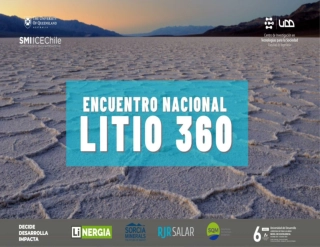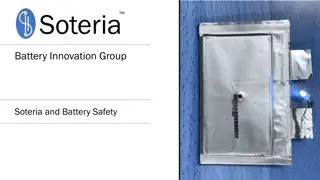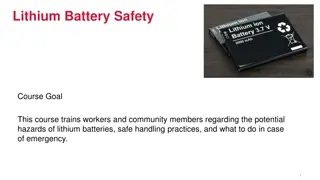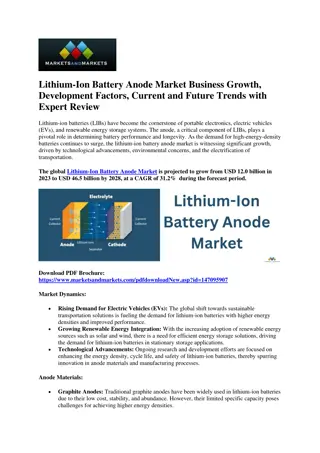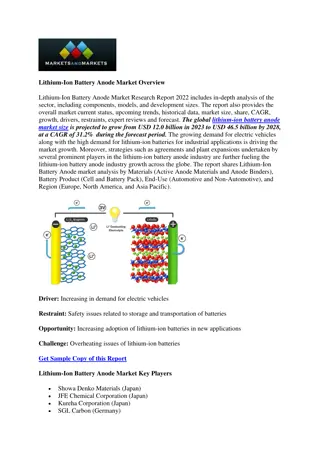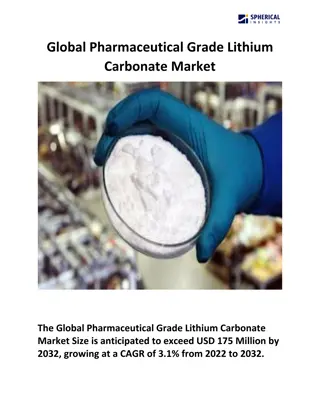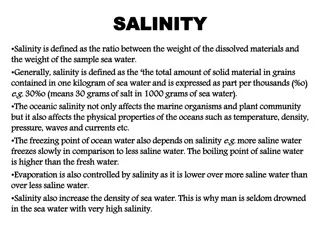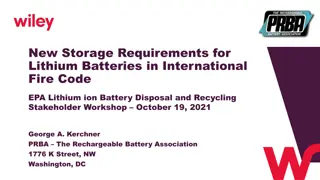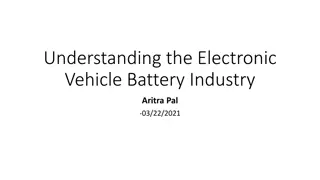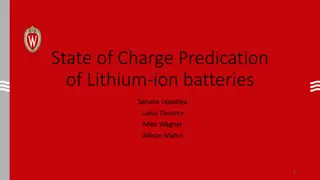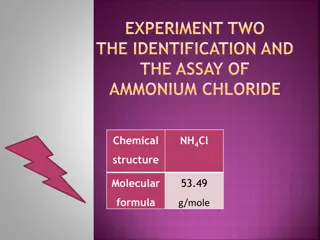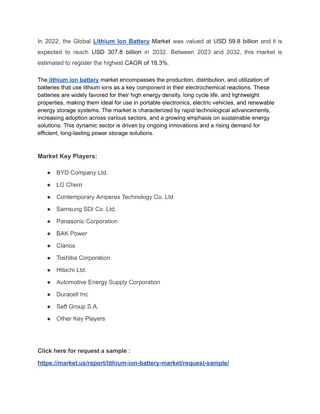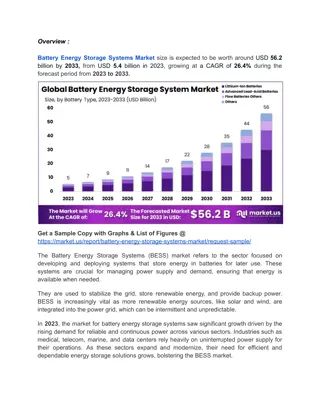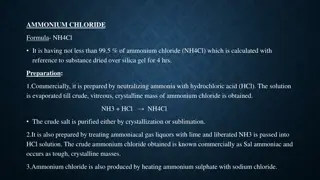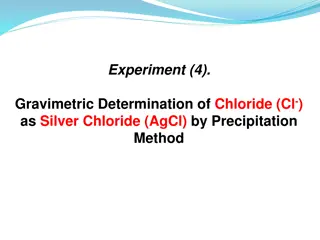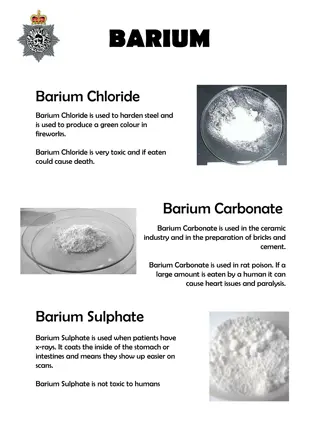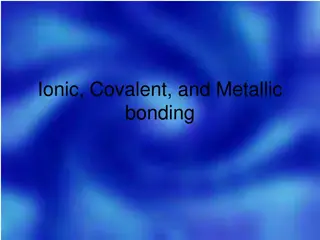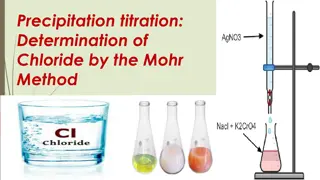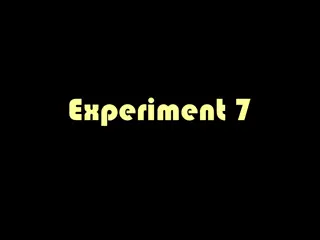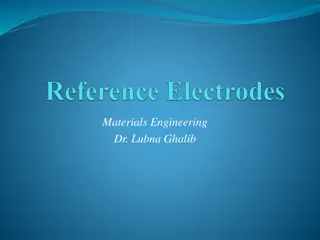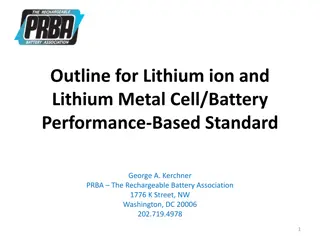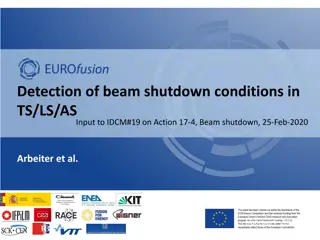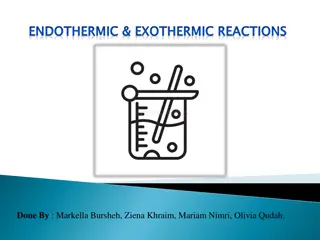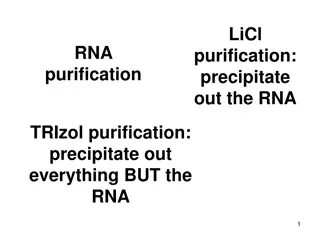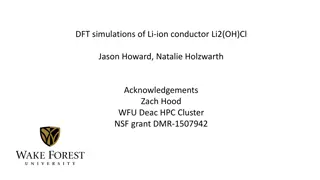Lithium-ion Battery Market
The global lithium-ion battery market size was valued at $46.2 billion in 2022, and lithium-ion battery industry is projected to reach $189.4 billion by 2032, growing at a CAGR of 15.2% from 2023 to 2032.
5 views • 6 slides
Revolutionary Lithium Extraction Technology by SORCIA/IBAT
SORCIA/IBAT's innovative lithium extraction process eliminates the need for chemicals, ensuring efficiency, resource protection, and cost-effectiveness. The modular and mobile plant design allows for rapid deployment with high flexibility, making it a game-changer in the industry. This breakthrough
0 views • 8 slides
Lithium-ion Battery Fire Risks and Safety Measures
Lithium-ion batteries pose significant fire hazards due to factors like flammable materials, manufacturing defects, and charging accidents. The frequent incidents of battery fires in various industries highlight the pressing need for improved safety measures. Current solutions, though existing, are
1 views • 12 slides
Lithium Battery Safety Course Overview
This course aims to educate workers and community members on the potential hazards associated with lithium batteries, safe handling practices, and emergency procedures. Covering topics such as identifying devices that use lithium batteries, understanding risks, implementing safe practices, and outli
1 views • 30 slides
Understanding Ionic and Covalent Bonding in Chemistry
Ionic bonding involves the transfer of electrons between a metal and a non-metal to form a giant lattice structure, like in sodium chloride and lithium oxide. Covalent bonding, on the other hand, occurs between non-metals, resulting in giant covalent structures or simple molecules. Examples such as
2 views • 79 slides
Acetyl Chloride Manufacturer Company
Dive into the world of chemical innovation with Modi Chemical, a premier Acetyl Chloride Manufacturer in Gujarat. Explore the cutting-edge processes and stringent quality standards that define our production, ensuring excellence in every molecule. With a commitment to sustainability and technologica
4 views • 1 slides
Lithium-Ion Battery Anode Market Analysis Competitive Landscape & Growth Factors
Europe stands out as the world's number two consumer of lithium-ion battery anodes by value. This robust market is fueled by the growing demand for electric vehicles (EVs) within the region. Government incentives and funding play a crucial role in promoting EV adoption, which in turn, translates to
1 views • 4 slides
Introduction-to-Lithium-Batteries
We have access to higher lithium batteries for solar applications. We manufacture lithium-ion solar batteries, used in inverter batteries and electric automobiles\nWe have access to higher lithium batteries for solar applications. We manufacture lithium-ion solar batteries, used in inverter batterie
0 views • 8 slides
Ferric Chloride Market Size, Share, Scope, Trends And Forecast 2032
The global ferric chloride market size was USD 7.25 billion in 2023 and is likely to reach USD 10.65 billion by 2032, expanding at a CAGR of 5% during 2024\u20132032.
0 views • 5 slides
Lithium-Ion Battery Anode Market Size, Share, Industry Analysis and Segments
The global Lithium-Ion Battery Anode Market is projected to grow from USD 12.0 billion in 2023 to USD 46.5 billion by 2028, at a CAGR of 31.2% during the forecast period. The lithium-ion battery anode market is experiencing significant growth driven by the increase in demand for EVs, consumer elect
1 views • 5 slides
Global Pharmaceutical Grade Lithium Carbonate Market
The Global Pharmaceutical Grade Lithium Carbonate Market Size is anticipated to exceed USD 175 Million by 2032, growing at a CAGR of 3.1% from 2022 to 2032.\n
0 views • 5 slides
Understanding Salinity in Seawater and Its Impacts
Salinity is the ratio of dissolved materials to the weight of seawater, affecting marine life and physical ocean properties like temperature, density, and waves. It influences freezing and boiling points, evaporation, and water density. Seawater composition includes salts like sodium chloride, magne
0 views • 11 slides
New Storage Requirements for Lithium Batteries in International Fire Code
The International Fire Code (IFC) is being amended to include new storage requirements for lithium batteries due to their high hazard classification. The upcoming 2024 IFC will introduce stricter guidelines for storing lithium batteries, with limitations on indoor and outdoor storage, permit require
0 views • 14 slides
Understanding the Electronic Vehicle Battery Industry
Exploring the electronic vehicle battery industry, this content delves into the manufacturing processes, cost breakdown, challenges, and areas for cost improvement. Key components like lithium-ion cells, raw material costs, and critical materials such as lithium, cobalt, and nickel are discussed. Th
0 views • 10 slides
Understanding State of Charge Prediction in Lithium-ion Batteries
Explore the significance of State of Charge (SOC) prediction in lithium-ion batteries, focusing on battery degradation models, voltage characteristics, accurate SOC estimation, SOC prediction methodologies, and testing equipment like Digatron Lithium Cell Tester. The content delves into SOC manageme
0 views • 32 slides
Identification and Assay of Ammonium Chloride: Experiment Insights
Explore the identification and assay process of Ammonium Chloride (NH4Cl), a weak inorganic acid commonly used in various applications. Discover its chemical properties, synthesis, reactivity, identification tests, and details of a titration process using NaOH and phenolphthalein as indicators.
0 views • 16 slides
Lithium-Ion Battery Market: How Environmental Regulations are Influencing Demand
In 2022, the Global Lithium Ion Battery Market was valued at USD 59.8 billion and it is expected to reach USD 307.8 billion in 2032. Between 2023 and 2032, this market is estimated to register the highest CAGR of 18.3%.\n\nClick here for request a sa
1 views • 4 slides
Lithium-Ion Batteries Dominate BESS Market with 53.3% Revenue Share Amid Cost Re
Battery Energy Storage Systems Market By Battery Type(Lithium-Ion Battery, Lead Acid Battery, Flywheel Battery, Other Battery Types), By Connection Type(On-grid, Off-grid), By Ownership (Customer-Owned, Third-Party Owned, Utility-Owned), By Energy Capacity(Below 100 MWh, Between 100 to 500 MWh, Abov
0 views • 4 slides
Overview of Ammonium Chloride: Properties, Preparation, and Uses
Ammonium Chloride, with the formula NH4Cl, is a compound containing not less than 99.5% NH4Cl. It is prepared commercially by neutralizing ammonia with hydrochloric acid or treating ammoniacal gas liquors with lime. The compound is essential for maintaining acid-base equilibrium, acts as an expector
2 views • 4 slides
Gravimetric Determination of Chloride as Silver Chloride
This experiment involves precipitating chloride ions as silver chloride by adding silver nitrate to an acidified chloride solution. The resulting silver chloride precipitate is coagulated, filtered, and weighed to determine the chloride content gravimetrically. Factors affecting the solubility of si
0 views • 13 slides
Chemical Compounds Overview: Barium, Calcium, Sodium, Lithium
Learn about the uses and potential dangers of Barium Chloride, Barium Carbonate, Barium Sulphate, Calcium Chloride, Calcium Carbonate, Calcium Sulphate, Sodium Chloride, Sodium Carbonate, Sodium Sulphate, Lithium Chloride, Lithium Carbonate, and Lithium Sulphate in various industries and application
0 views • 4 slides
Understanding Bonding in Chemistry
Delve into the world of chemical bonding through ionic, covalent, and metallic bonds. Explore how elements form bonds, from the attraction between sodium and chloride ions to the sharing of electrons in covalent bonds. Witness the formation of compounds like sodium chloride and magnesium oxide, unde
1 views • 12 slides
Quantitative Estimation of Metal Ions in a Mixture
Dr. Saadia Rashid Tariq explains the quantitative estimation of copper(II), calcium(II), and chloride in a mixture. The process involves iodometric titration for copper(II), complexometric titration for calcium(II), and gravimetric estimation for chloride. Detailed procedures, reactions, requirement
1 views • 8 slides
Determination of Chloride by Mohr Method
Precipitation titration is a volumetric method used for determining chloride ions. Mohr's method involves reacting alkaline or alkaline earth chlorides with silver nitrate in the presence of a potassium chromate indicator. The endpoint of the titration is signaled by the appearance of red silver chr
0 views • 9 slides
Role of Major Physiological Anions in the Human Body
Physiological anions such as chlorides, sulphates, bicarbonate, phosphates, and electrolytes play essential roles in maintaining various functions within the body. Chloride ions help in osmotic balance, charge balance, and acid-base balance. Sulphates are important for detoxification mechanisms and
0 views • 11 slides
Lithium Battery Fire Safety Awareness Campaign by LFB
Aimed at raising awareness about the increasing risks of lithium battery fires, the London Fire Brigade (LFB) has initiated the #chargesafe campaign. Highlighting the dangers associated with e-bike and e-scooter fires, the campaign emphasizes key messages such as proper storage and charging practice
0 views • 13 slides
Gravimetric Determination of Chloride in Analytical Chemistry
Gravimetric determination of chloride involves precipitating silver chloride from a soluble sample, filtering, drying, and weighing the precipitate to calculate chloride content. Reagents include concentrated HNO3, AgNO3, and NH3, and the procedure consists of steps such as washing, precipitation, f
0 views • 12 slides
Review of Water Quality Standards TR17 Updates & Chloride Criteria
Updates in the Triennial Review of Water Quality Standards TR17 regarding chloride criteria for water quality in Pennsylvania were presented to the Citizens Advisory Council. The need for protecting aquatic life statewide due to negative impacts from chloride concentrations, as well as insights on t
0 views • 19 slides
Exploring Copper Sulfate, Sodium Nitrate, and Ammonium Chloride in Chemistry Projects
Delve into the properties and uses of copper sulfate, sodium nitrate, and ammonium chloride in chemistry projects. Discover how these chemical compounds play vital roles in agriculture, industry, and everyday applications, from fungicides to food additives.
0 views • 9 slides
Understanding the Connection Between Lithium and Suicide Rates
Examining the correlation between lithium levels and suicide rates reveals mixed findings, with some studies suggesting a potential association while others show weak statistical significance. Factors such as gender, statistical methods, and concentration thresholds further complicate the relationsh
0 views • 23 slides
Challenges and Opportunities in 21st Century Extractive Industries: Cases of Lithium in Argentina and Copper in Chile
Extractive industries, like copper and lithium in Latin America, face significant challenges and pressures for transformation. This research delves into the opportunities and obstacles for change, exploring the socio-technological transitions framework. By discussing the transformation potential for
0 views • 30 slides
Understanding Electrode Potential in Materials Engineering
In materials engineering, understanding electrode potential is crucial. The hydrogen electrode serves as a reference for potential measurements in aqueous solutions, but has limitations in oxidizing media. On the other hand, the silver-silver chloride electrode provides a dynamic equilibrium between
0 views • 15 slides
Lithium Ion and Lithium Metal Cell/Battery Performance Standard
This outline outlines the development of performance-based standards for lithium batteries to contain hazardous effects within the package, reducing the risk of catastrophic failures in aircraft due to fire incidents. It covers aspects such as thermal runaway, inducement methods, package testing, an
0 views • 15 slides
Analysis of Beam Shutdown Conditions in IDCM Input to Action
This comprehensive document explores the detection of beam shutdown conditions in the context of an IDCM input to Action. It covers scenarios requiring beam shutdown, available detection techniques, sensor compilation, and allocation of detection techniques. The analysis delves into the power source
0 views • 28 slides
Understanding Endothermic and Exothermic Reactions Through Experiment
Explore the concepts of endothermic and exothermic reactions with a detailed experiment to determine which solute dissolves most endothermically and exothermically in water. Discover the roles of heat transfer in chemical reactions using potassium chloride, calcium chloride, sodium carbonate, and so
0 views • 11 slides
Advancements in Machine Learning for Electron Density Prediction
Electron density is crucial for understanding atomic bonding. This research project explores using machine learning, specifically a Unet architecture, to predict electron density in a Lithium-Oxygen-Lithium system. The data set was generated by varying the positions of Lithium atoms and calculating
0 views • 8 slides
Blue Ribbon Commission Report on Lithium Extraction in California
Blue Ribbon Commission was established by Assembly Bill 1657 to address the growing demand for lithium in California. The report focuses on the economic, environmental, and national security implications of developing a domestic supply of lithium from the Salton Sea geothermal resource area. The Com
0 views • 11 slides
Lithium Ion Battery Market Demand, Exclusive Profit, Rapid Growth and Strategic
Lithium Ion Battery Market size is expected to be worth around USD 307.8 billion by 2032, from USD 70.7 Billion in 2023, growing at a CAGR of 18.3% during the forecast period from 2023 to 2033.
1 views • 8 slides
Methods for RNA Purification and Separation from DNA
Selective precipitation of RNA using Lithium Chloride (LiCl) and extraction with phenol at acidic pH are two common methods for separating RNA from DNA. LiCl forms a complex with RNA facilitating its precipitation, while acidic phenol solution helps stabilize RNA at pH 4-5 for extraction. TRIzol var
0 views • 7 slides
Understanding Lithium Ion Conduction in Li2(OH)Cl Through DFT Simulations
DFT simulations were conducted on the lithium ion conductor Li2(OH)Cl to investigate its low and high-temperature phases. The motivation behind the study was to uncover the structural features impacting the phase transition and diffusion properties of the material. The background highlighted two pha
0 views • 16 slides

